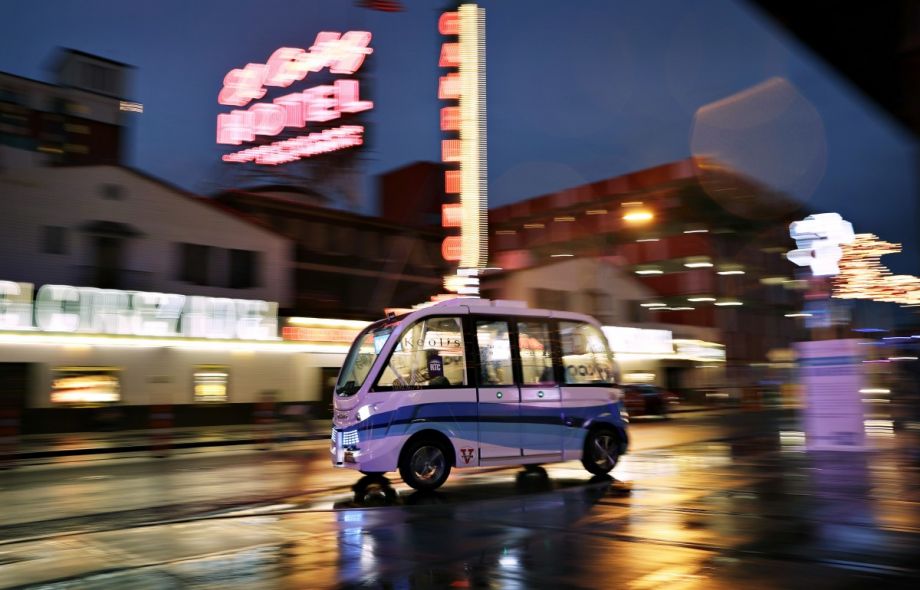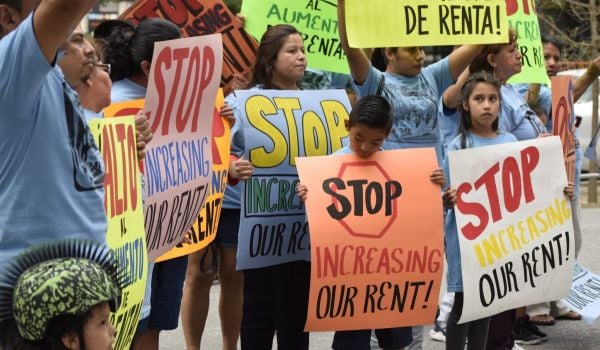Cities may be able to tap into a new multibillion-dollar fund to accelerate their shared mobility and clean transit programs — but to do it will require a little hotwiring.
As part of Volkswagen’s settlement with federal regulators over its diesel emissions scandal, the company has agreed to funnel billions of dollars to states over the next 10 years to promote the adoption of zero-emission electric vehicles (EV) and charging infrastructure.
Volkswagen is accepting proposals for ways to invest its money through its Electrify America website, and although the initial submission period has closed, the company has said it will continue to take ideas on a rolling basis.
Expanding electric charging infrastructure is a worthy endeavor. However, cities should work with their state partners — who will ultimately determine how the funds are allotted — to think more broadly. Instead of just promoting private ownership of electric vehicles, Volkswagen’s funds would be well spent on public transit, EV car-sharing and other forms of shared mobility that can help cut emissions while reducing household transportation costs and expanding environmentally sound mobility options for all.
Currently, only the state of California is slated to get funding for shared mobility, in part because the California Air Resources Board (CARB) played a key role in negotiating the overall settlement. But there’s no reason to limit these projects to the West Coast. Especially since shared mobility is the most efficient, effective and just way to spend Volkswagen’s funds — and to improve mobility choices in a wide variety of communities across the nation, including those hit hardest by harmful auto emissions.
Transit and shared mobility offer cities the biggest return on investment. Encouraging people to swap privately owned, gasoline- and diesel-powered cars for electric vehicles will benefit the environment. However, that 1-to-1 ratio just can’t compare with the return on investment offered by public transit and shared mobility.
When you combine two drivers into one shared ride, you halve your emissions and double the efficiency of that trip. Take 10 drivers and put them in an electric shuttle or a public bus, and the benefits become even more pronounced.
Studies have also shown that shared mobility can directly reduce long-term reliance on private autos. According to research from the University of California-Berkeley, for instance, one car-share car can take between nine and 13 private vehicles off the road. Because it helps break the habit of everyday car use, car-sharing makes people more likely to sell their current vehicle or forgo the purchase of a new one.
In the case of EV car-sharing, that means that every new shared, zero-emission vehicle could potentially replace more than a dozen gasoline-powered cars. And, transit and shared mobility also help to promote greater use of active, carbon-neutral forms of transportation such as walking and cycling.
Shared mobility can help support investments in EV charging infrastructure. Many communities have had a hard time finding money to build and maintain charging networks, in part because there are still relatively few electric cars on the road, and because such investments depend upon unproven cost recovery prospects. Others have stretched to build charging stations only to see them sit unused.
EV car-sharing can help support the wide-scale deployment of electric charging infrastructure by filling in a missing piece of this equation — providing the demand needed to keep public charging stations well-utilized and in good working order.
Each car in Paris’ 4,000-vehicle Autolib EV car-sharing system, for instance, is rented six to seven times per day on average. Paris and other cities have also opened up access to car-share charging stations for private vehicles, essentially making the car-share operator the facilitator of the charging network. And, in these cases, the operator often brings significant investment to the table through a public-private partnership to help cover infrastructure costs, which can be especially high in urban settings.
Additionally, if increasing awareness of EVs is a goal – what better way to get thousands of people behind the wheel of electric cars than by featuring them in highly visible, on-street car-sharing programs?
Shared mobility can help ensure Volkswagen’s funds reach all communities. Beginning in 2009, Volkswagen built and sold more than 11 million diesel cars equipped with software designed to cheat on emissions tests. Unbeknownst to their owners, these cars were discharging as much as 40 times the permitted levels of nitrogen oxide into the atmosphere.
While Volkswagen’s actions have harmed our planet as a whole, the people hit hardest by hazardous vehicle emissions are often those who live in disadvantaged communities located in freeway air-pollution sheds.
Instead of promoting the purchase of expensive new electric vehicles, it only seems right to reinvest Volkswagen’s funds into neighborhoods that are most impacted by auto emissions. These communities also stand to benefit the most from increased access to transportation that can help residents get to the doctor’s office, the grocery store or their next job interview.
The Shared-Use Mobility Center is working with the city of Los Angeles to pilot EV car-sharing in disadvantaged neighborhoods in L.A., and that project can serve as an effective template that other cities can follow. California, for its part, has provided strong guidance to Volkswagen that disadvantaged communities should be prioritized, and that car-sharing programs are a strategy worth investing in toward that end.
There’s no question that zero-emission electric vehicles, whether owned or shared, are much more environmentally friendly than gasoline-powered cars. Additionally, in areas with low population density where transit is limited, promoting private adoption of EVs may be the most efficient way to invest Volkswagen’s money.
However, for many cities, these funds represent a once-in-a-lifetime opportunity to foster growth of clean transit, EV car-sharing and other shared mobility programs. To realize the greatest return on their investment, local and state leaders should work together to push Volkswagen to plug shared mobility into its electrification efforts. By doing so, they can help ensure these investments reach a wide range of communities, deliver significant environmental benefits — and help to zap car ownership.
Sharon Feigon is executive director of the Shared-Use Mobility Center, a public-interest organization working to foster collaboration in shared mobility and extend its benefits for all through piloting programs, conducting research and providing advice and expertise to cities and regions. She previously served as CEO of Chicago’s IGO Carsharing. Under Sharon’s leadership, IGO grew from a small pilot into a successful operating company with 15,000 members in 45 neighborhoods. Prior to taking the helm at IGO, Sharon was Director of R&D at the Center for Neighborhood Technology, where she specialized in developing innovative, market-based solutions to the problems of urban sprawl.









_600_350_80_s_c1.jpg)






